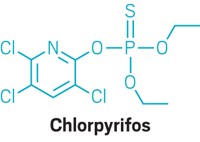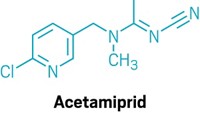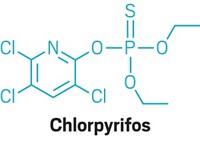Advertisement
Grab your lab coat. Let's get started
Welcome!
Welcome!
Create an account below to get 6 C&EN articles per month, receive newsletters and more - all free.
It seems this is your first time logging in online. Please enter the following information to continue.
As an ACS member you automatically get access to this site. All we need is few more details to create your reading experience.
Not you? Sign in with a different account.
Not you? Sign in with a different account.
ERROR 1
ERROR 1
ERROR 2
ERROR 2
ERROR 2
ERROR 2
ERROR 2
Password and Confirm password must match.
If you have an ACS member number, please enter it here so we can link this account to your membership. (optional)
ERROR 2
ACS values your privacy. By submitting your information, you are gaining access to C&EN and subscribing to our weekly newsletter. We use the information you provide to make your reading experience better, and we will never sell your data to third party members.
Environment
Europe Bans Three Neonicotinoids
Regulation: Chemicals linked to disastrous honeybee population declines cannot be used for at least two years, European Commission says
by Britt E. Erickson
May 2, 2013
| A version of this story appeared in
Volume 91, Issue 18
The European Commission (EC) plans to move ahead with a two-year ban on three neonicotinoid pesticides. The move came after member states failed to reach a majority for or against the ban during an appeals committee vote on April 29. The restrictions will go into effect in December.
The decision to ban the three chemicals—clothianidin, imidacloprid, and thiamethoxam—was prompted by a study by the European Food Safety Authority that associated the pesticides with numerous risks to honeybee health.
Fifteen member states supported the restriction, eight voted against it, and four abstained during the appeals committee vote. Because a qualified majority was not met, the decision was handed over to the EC—the administrative arm of the European Union—which chose to go forward with the ban.
“I pledge to do my utmost to ensure that our bees, which are so vital to our ecosystem and contribute over €22 billion [$29 billion] annually to European agriculture, are protected,” Tonio Borg, European commissioner for health and consumer policy, said in a statement after the vote. The commission will release its plan for removing the three pesticides from the European marketplace in coming weeks.
Bayer CropScience, maker of clothianidin and imidacloprid, called the decision “a setback for technology, innovation, and sustainability.” The company claims that the restrictions will lead to reduced crop yields, lower food quality, and less competitive European agriculture.
Bayer remains convinced that neonicotinoids are safe for bees, when used according to label instructions. “Clear scientific evidence has taken a backseat in the decision-making process,” the company says.
The environmental group Friends of the Earth hailed the EC’s decision, calling it “a significant victory for bees and common sense.” But the group warned that bees face many threats beyond pesticides.





Join the conversation
Contact the reporter
Submit a Letter to the Editor for publication
Engage with us on Twitter